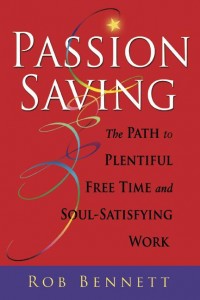An earlier blog entry described the background of my recent correspondence with Michael Kitces on safe withdrawal rates (SWRs). Set forth below is the text of an e-mail that Michael sent me on October 18.
Rob,
I wanted to touch base with you, because the following quote message board quote just came to my attention:
“Michael Kitces also said something along these lines when he said that, while he agrees that many will suffer financial losses because of the errors in the Old School studies, he does not want to warn people about them because this would be to “disrespect” these studies.”
PLEASE be more careful with how you attribute statements I have made and the context in which I made them. This is not an accurate reflection of what I have stated, nor of my beliefs themselves.
First of all, your statement about my beliefs in the value of warning people about this issue goes against both what I have written you, and what I have written publicly. For instance, my blog post last month on this issue itself (http://www.kitces.com/blog/index.php?/archives/29-Is-the-Safe-Withdrawal-Rate-too-safe-Or-too-aggressive!.html), contradicts the statement you attributed to me. I have to admit I am more than a little bit shocked and dismayed that you would say I don’t think we should warn people about these risks, especially when I took the time to specifically write you to point out this blog, and your first response was “That’s an extremely helpful and important blog post. I believe that that will do a lot of good for a lot of people.”
As for the “respect” issue itself… What I wrote to you originally was simply to acknowledge that the framework that future withdrawal rates MAY be lower because of the outsized valuations of the early 2000s is a theory. The safe withdrawal rate research that exists (a la Bengen) is based on the historical record, and is a matter of empirical fact. I believe we have to respect the empirical facts that exist, and cannot entirely throw them out for a theory that hasn’t yet been ACTUALLY tested. That doesn’t mean we can’t challenge prior research – we should, and I support that. And I’ve written about it as you have. It simply means that I don’t think it’s appropriate to say that every piece of data we ACTUALLY have should be thrown out, and that we should place 100% of our faith in a theory that has never before been tested for the valuation levels to which they are being applied. The empirical record of the past, and theoretical models for the future, should BOTH have a place in the body of research. That is all I stated to you originally about “respecting” prior research, and I most definitely did not EVER state that I believe we shouldn’t provide people information about the risks (i.e., to “warn” them), for any reason.
I appreciate your efforts in getting the word out on these issues, and I believe our views are actually quite close on many of these issues. But I would greatly appreciate it if you would be more cautious in your efforts to quote my views, especially when they contrast what I have already publicly written (my blog post came out nearly a month ago) and be especially cautious when you attribute to me motivations (like not wanting to warn people to avoid disrespecting prior research) that are not accurate and that I have never stated myself.
Best wishes and warm regards,
– Michael


I am curious to what your reaction is to his email.
Thanks in advance
My reaction is —
Holy moly!
I’m just joking around, Retiring Soon.
I’ll post my response e-mail to Michael as tomorrow’s blog entry.
Same bat time, same bat channel.
Rob